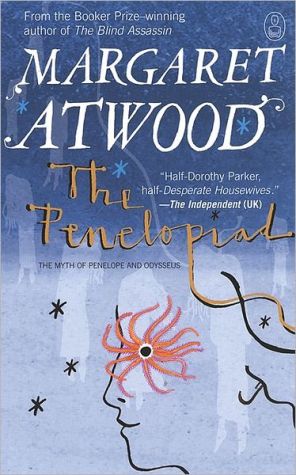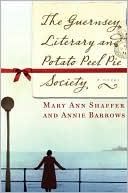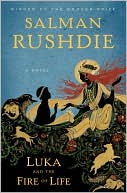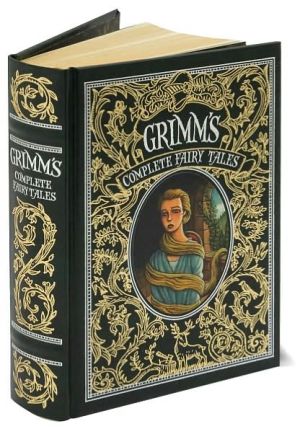The Penelopiad: The Myth of Penelope and Odysseus
"Homer's Odyssey is not the only version of the story. Mythic material was originally oral, and also local - a myth would be told one way in one place and quite differently in another. I have drawn on material other than the Odyssey, especially for the details of Penelope's parentage, her early life and marriage, and the scandalous rumors circulating about her. "I've chosen to give the telling of the story to Penelope and to the twelve hanged maids. The maids form a chanting and singing...
Search in google:
“Homer’s Odyssey is not the only version of the story. Mythic material was originally oral, and also local -- a myth would be told one way in one place and quite differently in another. I have drawn on material other than the Odyssey, especially for the details of Penelope’s parentage, her early life and marriage, and the scandalous rumors circulating about her. I’ve chosen to give the telling of the story to Penelope and to the twelve hanged maids. The maids form a chanting and singing Chorus, which focuses on two questions that must pose themselves after any close reading of the Odyssey: What led to the hanging of the maids, and what was Penelope really up to? The story as told in the Odyssey doesn’t hold water: there are too many inconsistencies. I’ve always been haunted by the hanged maids and, in The Penelopiad, so is Penelope herself.” -- from Margaret Atwood’s Foreword to The PenelopiadThe New York Times - Caroline AlexanderHere, amid the moon cults and palace of women and the returned king, "spattered over with gore and battle filth," as Homer tells us, is fabulous Atwood territory. Unfortunately, she does not grasp this thorny nettle, but chooses instead to blow feather-light dandelions…Each Odyssean landmark is inverted with a broad wink.
The Penelopiad\ \ By Margaret Atwood \ Random House\ Margaret Atwood\ All right reserved. \ ISBN: 067697418X \ \ \ Chapter One\ A Low Art\ \ Now that I'm dead I know everything. This is what I wished would happen, but like so many of my wishes it failed to come true. I know only a few factoids that I didn't know before. It's much too high a price to pay for the satisfaction of curiosity, needless to say.\ Since being dead -- since achieving this state of bonelessness, liplessness, breastlessness -- I've learned some things I would rather not know, as one does when listening at windows or opening other people's letters. You think you'd like to read minds? Think again.\ \ Down here everyone arrives with a sack, like the sacks used to keep the winds in, but each of these sacks is full of words -- words you've spoken, words you've heard, words that have been said about you. Some sacks are very small, others large; my own is of a reasonable size, though a lot of the words in it concern my eminent husband. What a fool he made of me, some say. It was a specialty of his: making fools. He got away with everything, which was another of his specialties: getting away.\ \ He was always so plausible. Many people have believed that his version of events was the true one, give or take a few murders, a few beautiful seductresses, a few one-eyed monsters. Even I believed him, from time to time. I knew he was tricky and a liar, I just didn't think he would play his tricks and try out his lies on me. Hadn't I been faithful? Hadn't I waited, and waited, and waited, despite the temptation -- almost the compulsion -- to do otherwise? And what did I amount to, once the official version gained ground? An edifying legend. A stick used to beat other women with. Why couldn't they be as considerate, as trustworthy, as all-suffering as I had been? That was the line they took, the singers, the yarn-spinners. Don't follow my example, I want to scream in your ears -- yes, yours! But when I try to scream, I sound like an owl.\ \ Of course I had inklings, about his slipperiness, his wiliness, his foxiness, his -- how can I put this? -- his unscrupulousness, but I turned a blind eye. I kept my mouth shut; or, if I opened it, I sang his praises. I didn't contradict, I didn't ask awkward questions, I didn't dig deep. I wanted happy endings in those days, and happy endings are best achieved by keeping the right doors locked and going to sleep during the rampages.\ \ But after the main events were over and things had become less legendary, I realized how many people were laughing at me behind my back -- how they were jeering, making jokes about me, jokes both clean and dirty; how they were turning me into a story, or into several stories, though not the kind of stories I'd prefer to hear about myself. What can a woman do when scandalous gossip travels the world? If she defends herself she sounds guilty. So I waited some more.\ \ Now that all the others have run out of air, it's my turn to do a little story-making. I owe it to myself. I've had to work myself up to it: it's a low art, tale-telling. Old women go in for it, strolling beggars, blind singers, maidservants, children -- folks with time on their hands. Once, people would have laughed if I'd tried to play the minstrel -- there's nothing more preposterous than an aristocrat fumbling around with the arts -- but who cares about public opinion now? The opinion of the people down here: the opinion of shadows, of echoes. So I'll spin a thread of my own.\ \ The difficulty is that I have no mouth through which I can speak. I can't make myself understood, not in your world, the world of bodies, of tongues and fingers; and most of the time I have no listeners, not on your side of the river. Those of you who may catch the odd whisper, the odd squeak, so easily mistake my words for breezes rustling the dry reeds, for bats at twilight, for bad dreams.\ \ But I've always been of a determined nature. Patient, they used to call me. I like to see a thing through to the end.\ \ ii\ The Chorus Line:\ A Rope-Jumping Rhyme\ we are the maids\ the ones you killed\ the ones you failed\ \ we danced in air\ our bare feet twitched\ it was not fair\ \ with every goddess, queen, and bitch\ from there to here\ you scratched your itch\ \ we did much less\ than what you did\ you judged us bad\ \ you had the spear\ you had the word\ at your command\ \ we scrubbed the blood\ of our dead\ paramours from floors, from chairs\ \ from stairs, from doors, \ we knelt in water\ while you stared\ \ at our bare feet \ it was not fair\ you licked our fear\ \ it gave you pleasure \ you raised your hand\ you watched us fall\ \ we danced on air \ the ones you failed\ the ones you killed\ \ iii\ My Childhood\ Where shall I begin? There are only two choices: at the beginning or not at the beginning. The real beginning would be the beginning of the world, after which one thing has led to another; but since there are differences of opinion about that, I'll begin with my own birth.\ \ My father was King Icarius of Sparta. My mother was a Naiad. Daughters of Naiads were a dime a dozen in those days; the place was crawling with them. Nevertheless, it never hurts to be of semi-divine birth. Or it never hurts immediately.\ \ When I was quite young my father ordered me to be thrown into the sea. I never knew exactly why, during my lifetime, but now I suspect he'd been told by an oracle that I would weave his shroud. Possibly he thought that if he killed me first, his shroud would never be woven and he would live forever. I can see how the reasoning might have gone. In that case, his wish to drown me came from an understandable desire to protect himself. But he must have misheard, or else the oracle herself misheard -- the gods often mumble -- because it was not his shroud that was at issue, but my father-in-law's shroud. If that was the prophecy it was a true one, and indeed the weaving of this particular shroud proved a great convenience to me later on in my life.\ \ The teaching of crafts to girls has fallen out of fashion now, I understand, but luckily it had not in my day. It's always an advantage to have something to do with your hands. That way, if someone makes an inappropriate remark, you can pretend you haven't heard it. Then you don't have to answer.\ \ But perhaps this shroud-weaving oracle idea of mine is baseless. Perhaps I have only invented it in order to make myself feel better. So much whispering goes on, in the dark caverns, in the meadows, that sometimes it's hard to know whether the whispering is coming from others or from the inside of your own head. I use head figuratively. We have dispensed with heads as such, down here.\ \ \ \ Excerpted from The Penelopiad by Margaret Atwood Excerpted by permission.\ All rights reserved. No part of this excerpt may be reproduced or reprinted without permission in writing from the publisher.\ Excerpts are provided by Dial-A-Book Inc. solely for the personal use of visitors to this web site. \ \
\ From Barnes & NobleMargaret Atwood decided that it was time that Penelope spoke for herself. In The Odyssey, the daughter of King Icarus is, of course, the quintessential faithful wife. To Booker Prize winner Atwood, Homer's version doesn't hold water: "There are too many inconsistencies." She was especially disturbed and haunted by the tale about Penelope's 12 hanged maids. In Penelopiad, Atwood recovers the hidden history of literature's most famous lady-in-waiting.\ \ \ \ \ Caroline AlexanderHere, amid the moon cults and palace of women and the returned king, "spattered over with gore and battle filth," as Homer tells us, is fabulous Atwood territory. Unfortunately, she does not grasp this thorny nettle, but chooses instead to blow feather-light dandelions…Each Odyssean landmark is inverted with a broad wink.\ —The New York Times\ \ \ KLIATTFrom the review of the audiobook in KLIATT, March 2006: Ever since first reading The Odyssey, Atwood has been haunted by the fate of Penelope's 12 handmaidens, brutally hanged without explanation as part of the carnage that accompanied Odysseus's return to Ithaca after his 20-year absence. Having immersed herself in research, Atwood creates another version of Homer's story, this time told as a 21st-century retrospective by the ghost of Penelope, and she offers her readers a solution to the mystery behind their deaths. By imposing a modern-day spin on an ancient story and the classical Greek chorus, here made up of the dead maids, Atwood can indulge her feminist viewpoint and her wry sense of humor, along with the lyricism that has earned her so many avid readers, while remaining true to the oral tradition that gave birth to the epic.\ \ \ \ \ Library JournalConceived by Canongate publisher Jamie Byng and launched this year by 30 publishers worldwide, this series will offer the retelling of favorite myths by leading authors from A.S. Byatt to Donna Tartt. Armstrong weighs in with a concise (and, one suspects, insightful) history. Byng expects the final volume to appear in 2038. Copyright 2005 Reed Business Information.\ \








